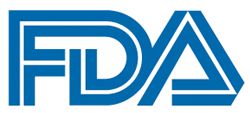FDA Grants Fast Track Designation to Leronlimab for CCR5+ mTNBC
The FDA has granted a fast track designation to a novel CCR5 antagonist, leronlimab (PRO 140), for use in combination with carboplatin to treat patients with CCR5-positive metastatic triple-negative breast cancer.

The FDA has granted a fast track designation to a novel CCR5 antagonist, leronlimab (PRO 140), for use in combination with carboplatin to treat patients with CCR5-positive metastatic triple-negative breast cancer (mTNBC).1
“This is an important acknowledgement of the potentially paradigm-shifting therapy option in metastatic triple-negative breast cancer,” stated Richard Pestell, MD, PhD, vice chairman and chief medical officer of CytoDyn, the company developing leronlimab.
The FDA’s fast track designation program assists with the accelerated development and review of drugs designed to treat serious conditions that may fill a current unmet medical need. The program allows for increased communication between the FDA and the developing company regarding the drug development plan, design of clinical trials, use of biomarkers, and more.
The designation was granted as a result of significant preclinical results in the TNBC setting, which demonstrated that leronlimab reduced the incidence of breast cancer metastasis by more than 98% in a mouse xenograft model through 6 weeks.2
The investigators believed the CCR5 inhibition with leronlimab could disrupt signaling as well as the spread of CCR5-positive circulating tumor cells.
A phase Ib/II study of leronlimab plus carboplatin has been initiated in patients with previously treated CCR5-positive locally advanced or metastatic TNBC (NCT03838367). CytoDyn announced that the first patient would receive the first dose of leronlimab soon.
The phase Ib portion of the study will be a dose-escalation phase where patients will be treated with 1 of 3 dose levels of leronlimab plus a fixed dose of AUC 5 carboplatin. The 3 dose cohorts are for 350 mg, 525 mg, and 700 mg of leronlimab. The dose-escalation phase is aimed at determining the maximum-tolerated dose of the novel agent. Phase II of the study will include 30 patients and has a primary endpoint of progression-free survival.
Additional secondary endpoints include safety, overall response rate, time to new metastases, change from baseline in circulating tumor cells, and overall survival.
Eligible patients must be able to demonstrate CCR5 positivity of more than 10% membranous staining by immunohistochemistry, have an ECOG performance status of 0 to 1, and have adequate organ and bone marrow function. Prior treatment with chemotherapy and/or immune checkpoint inhibition was not allowed in the metastatic setting, but eligible patients had received prior exposure to anthracyclines and a taxane in the neoadjuvant/adjuvant setting. Patients with known HIV-positive status, Hepatitis B and/or C virus, and those with active central nervous system metastases are not eligible for participation in the trial. A total of 48 patients are expected to be enrolled in the study.
Leronlimab is also being investigated in the setting of graft-versus-host disease as a possible preventive agent. The FDA granted leronlimab an orphan drug designation for the prevention of graft-versus-host disease. The novel agent is also being reviewed in several tumor types in preclinical studies.
References:
- FDA Grants CytoDyn Fast Track Designation for Leronlimab (PRO 140) in metastatic Triple-Negative Breast Cancer, an Unmet Medical Need [press release]. Vancouver, WA: CytoDyn Inc; May 7, 2019. https://bit.ly/2DWHsLT. Accessed May 7, 2019.
- Leronlimab (PRO 140) reduces by more than 98% human breast cancer metastasis in mouse xenografts for over 6 weeks. Vancouver, WA: CytoDyn Inc; February 20, 2019. https://bit.ly/304396g. Accessed May 7, 2019.
Batalini Explores Role of UGT1A1 in Patients Treated With Sacituzumab Govitecan for HR+ MBC
April 22nd 2024During a Community Case Forum live event in partnership with The Arizona Clinical Oncology Society, Felipe Batalini, MD, discussed the TROPiCS-02 trial of sacituzumab govitecan and the impact of the UGT1A1 status on adverse event frequency.
Read More
Breast Cancer Leans into the Decade of Antibody-Drug Conjugates, Experts Discuss
September 25th 2020In season 1, episode 3 of Targeted Talks, the importance of precision medicine in breast cancer, and how that vitally differs in community oncology compared with academic settings, is the topic of discussion.
Listen
Survival and Safety Outcomes Factor into Use of Sacituzumab Govitecan in HR+ Breast Cancer
March 29th 2024During a Case-Based Roundtable® event, Mark Pegram, MD, discussed the TROPiCS-02 trial of sacituzumab govitecan in hormone receptor–positive breast cancer in the first article of a 2-part series.
Read More